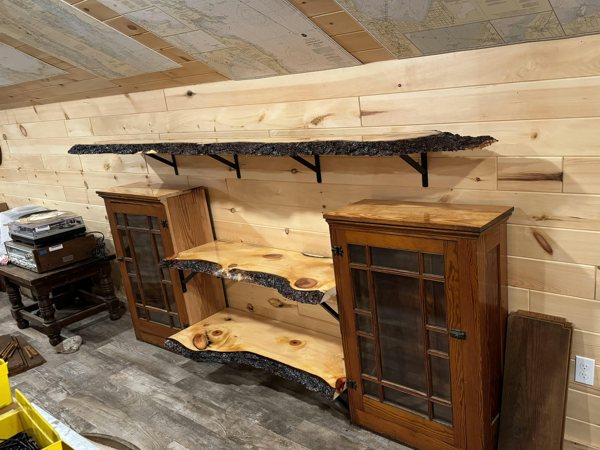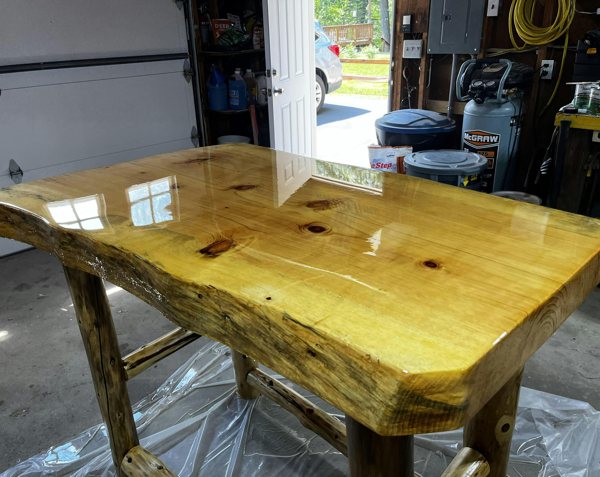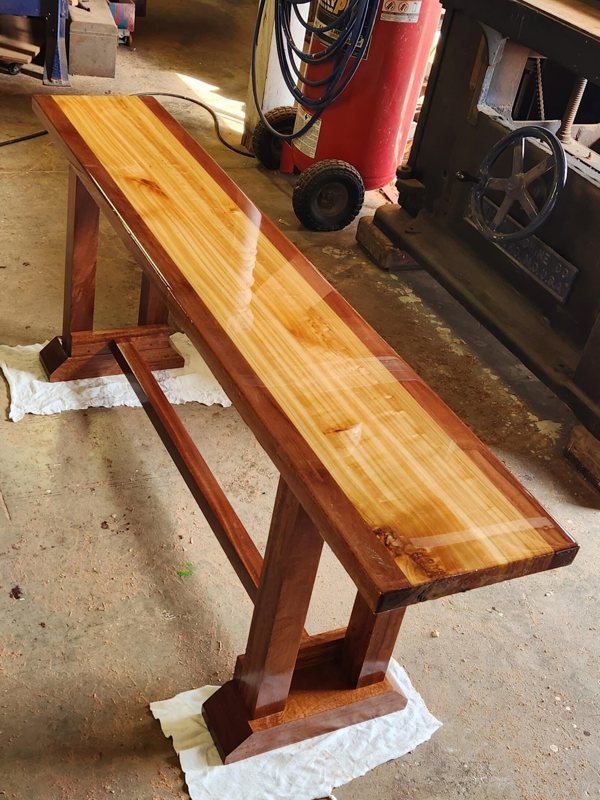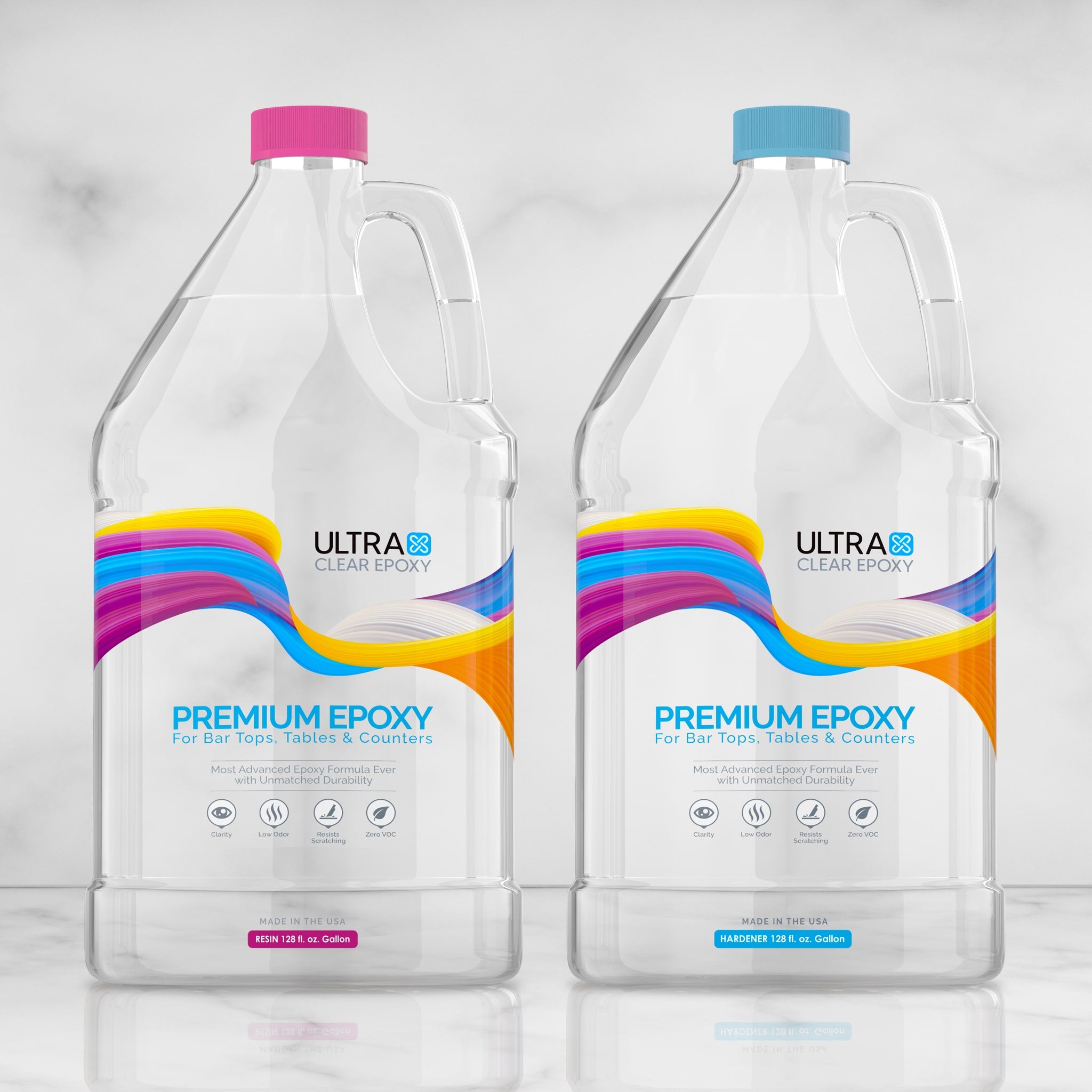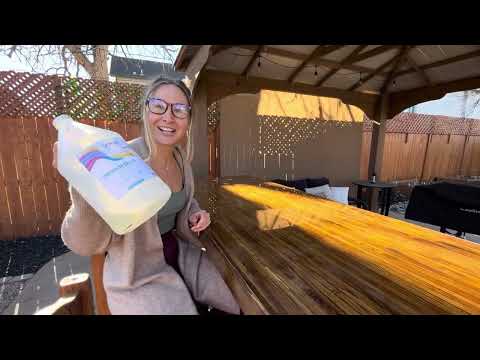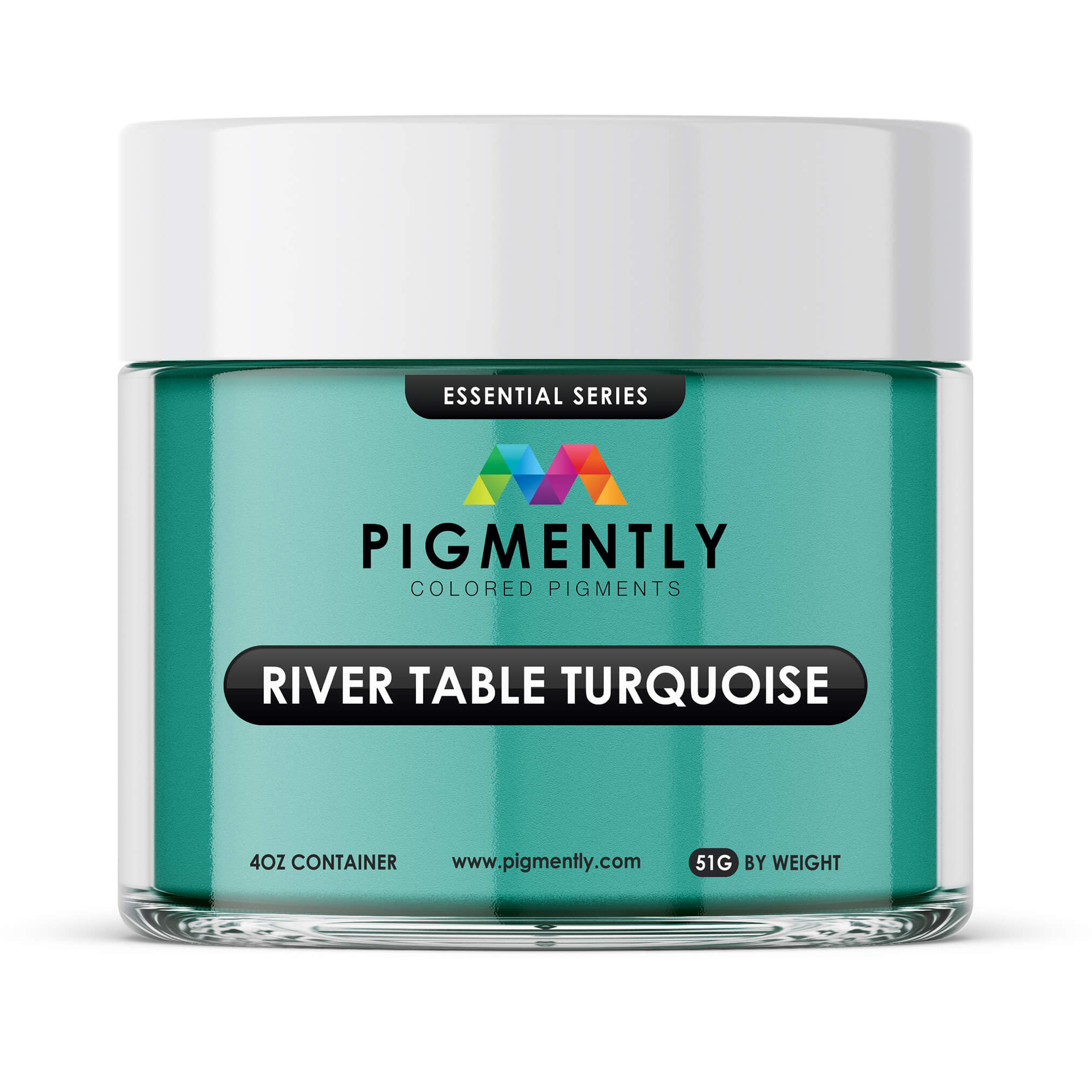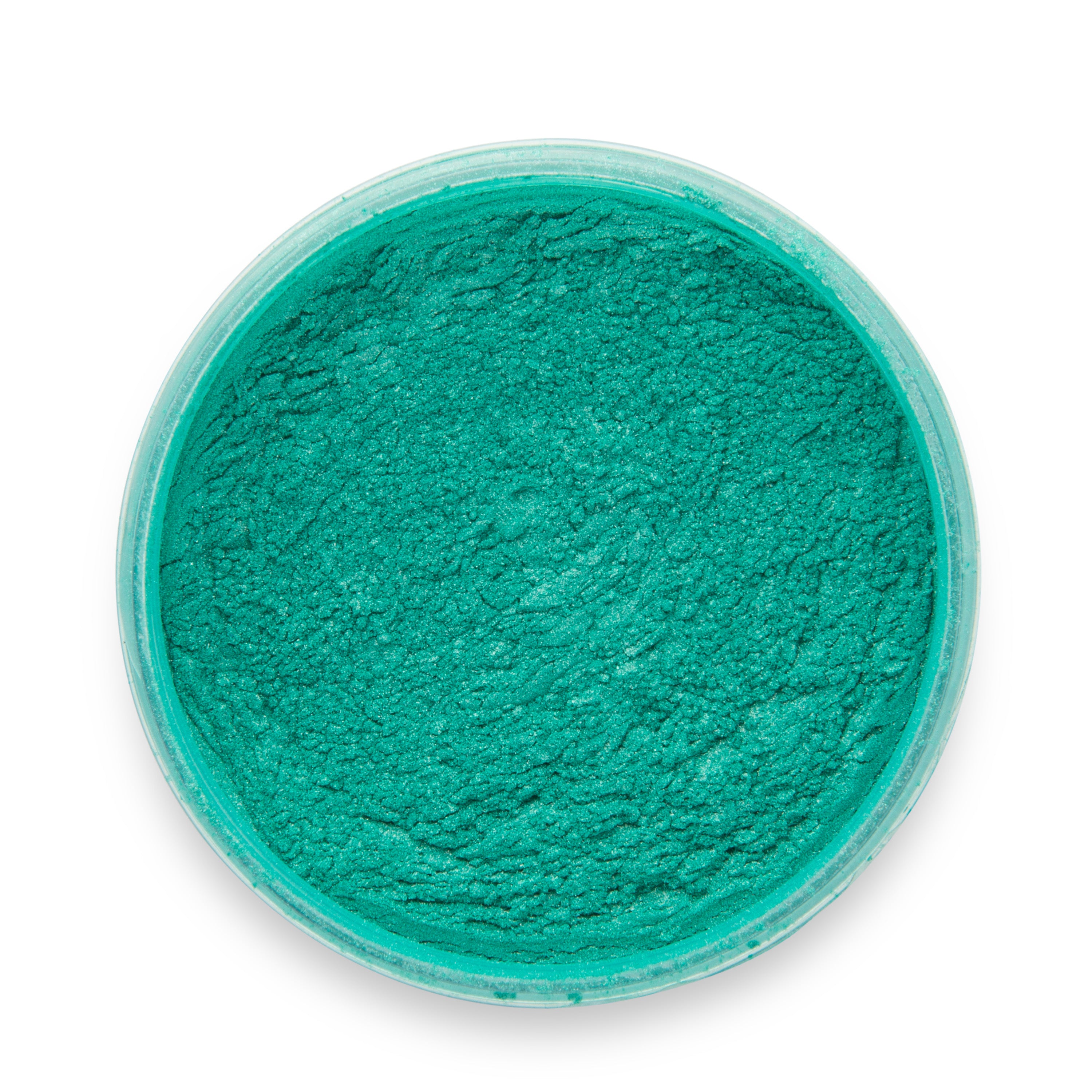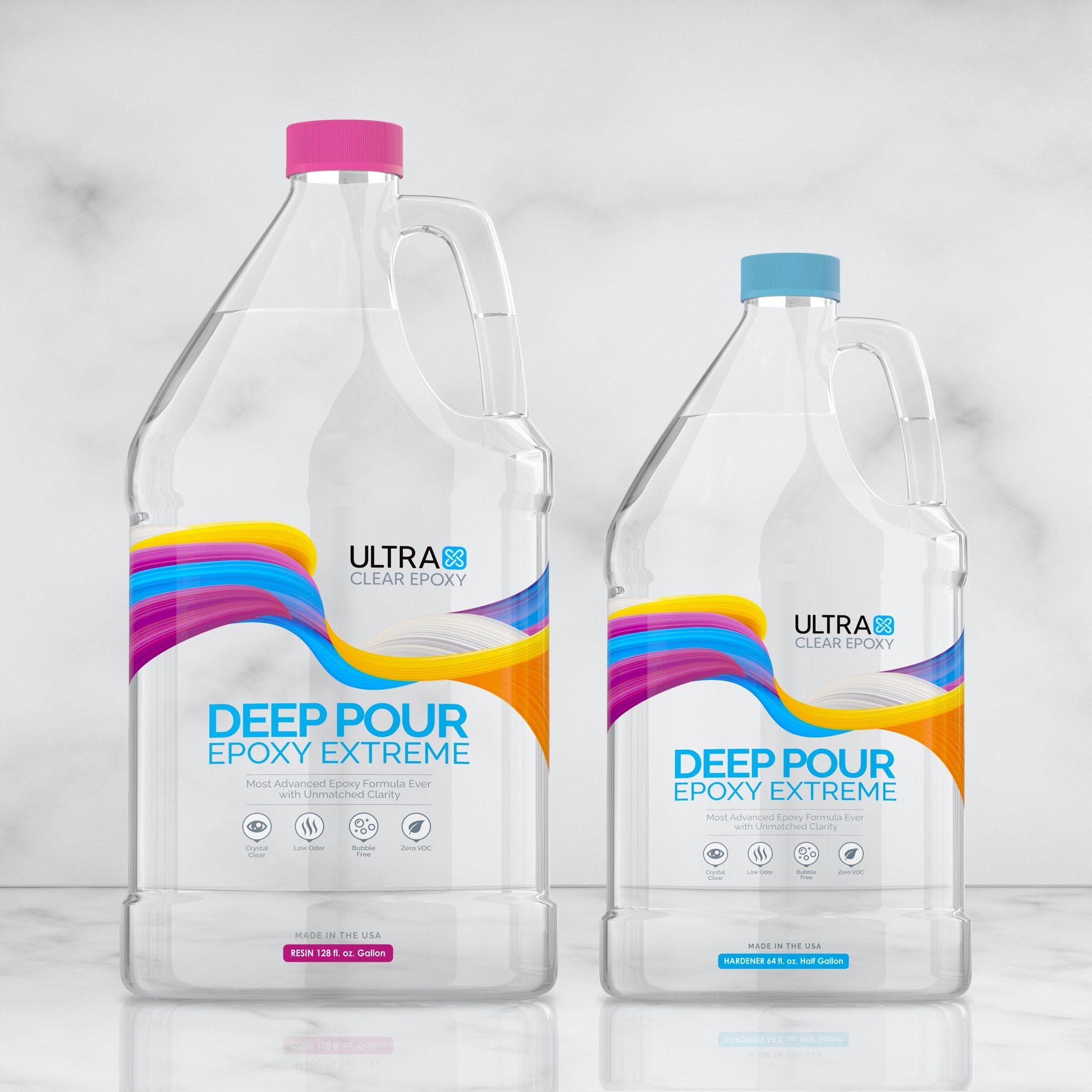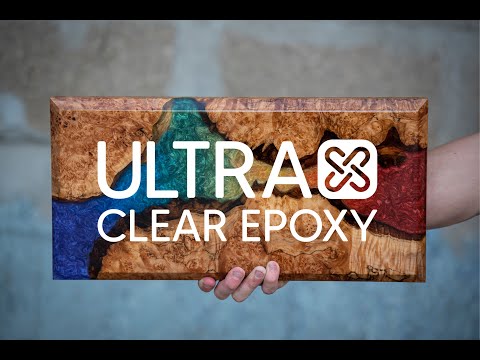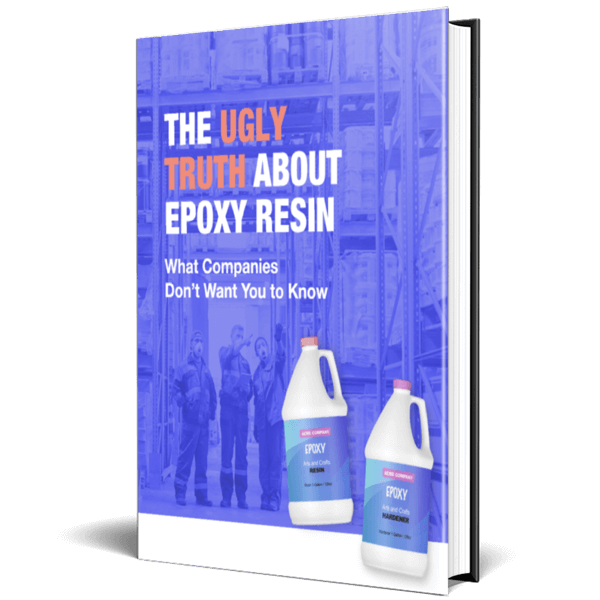Epoxy resin is well known for its incredible strength and crystal-clear beauty. Many have in turn likened it to glass by denoting its "glasslike" appearance.
But, appearances aside, what other traits does epoxy share with glass? Glass is fragile; is epoxy resin fragile, too?
In this article we'll explain how epoxy and glass differ from each other in strengths and which types of stress they can endure without buckling or breaking.
Does resin shatter like glass?
No, epoxy resin, by its nature, does not typically shatter in the way glass does.
Glass is a brittle material that, when broken, tends to fracture suddenly and violently into sharp pieces. Epoxy resin, on the other hand, is a plastic polymer that is more flexible and less brittle than glass in general.
Once cured, epoxy forms a solid material which can withstand a certain amount of flex or bending without breaking. When applied to a substrate, epoxy's inherent sturdiness works in tandem with the bonded surface to give it even greater resilience. That being said, it is possible for epoxy under certain conditions to crack or chip, especially if it is of a thinner pour or if it has not been mixed or cured properly.
Watch out for low-quality resin.
Poor-quality resin can become more brittle and susceptible to cracking. While these cracks might sometimes appear as shattering, particularly if the resin is under stress or impacted with significant force, it usually does not break apart as dramatically or dangerously as glass.
Generally speaking, while epoxy resin can crack or chip under certain conditions, it does not shatter in the same way that glass does due to its inherent material properties which offer more flexibility and resistance to sudden breakage.
Epoxy is not brittle like glass, so why is it transparent like glass?
Well, it's mostly due to complicated physics stuff.
Absorption by electrons.
When light tries to pass through a material, the material's subatomic particles attempt to absorb it. However, they can only absorb specific frequencies. If the light passing through doesn't meet those requirements, it will continue on unimpeded by them.
In this case, the components of epoxy are similar to glass in that they don't absorb the wavelengths that make up visible light.
Component quality affects the transparency.
The transparency of cured epoxy is also a result of its purity and the absence of impurities or colorants in its basic formulation. High-quality epoxy resins are carefully manufactured to minimize any cloudiness or discoloration, ensuring that the final product is as clear as possible. Additionally, the smooth and even surface of cured epoxy resin helps in minimizing any scattering of light, allowing it to pass through much like it does through glass.
However, it's important to note that while epoxy resin is naturally transparent, its clarity can be affected by various factors. These include the quality of the resin, the accuracy of the mixing ratio between resin and hardener, and the curing conditions. Any deviation in these factors can introduce bubbles, haziness, or cloudiness, affecting the resin's glasslike transparency.
Ultimately, the inherent characteristics of epoxy resin make it an excellent choice for applications where a clear, glass-like appearance is desired, such as in encapsulations, coatings, and artistic creations, but without the brittleness of glass.
Everything has weaknesses—what are epoxy's?
While epoxy is extremely resistant to shattering, it's not invulnerable and does have a few weaknesses, notably UV radiation and strong solvents.
#1: UV Radiation
Among plastics and polymers, UV radiation is very nearly a universal weakness, and epoxy is one of the many polymers susceptible to it.
The primary source of UV radiation is sunlight. When sunlight hits the earth's atmosphere, much of its damaging UV radiation is absorbed by earth's ozone layer. However, enough of it passes through to impact epoxy resin (and people!).
Consistent exposure to UV radiation can cause epoxy to gradually yellow. If it's lower in quality, it may also become more brittle or begin to crack internally.
Avoid the issue by providing cover.
You can prevent sunlight damage through a couple of different ways. The first is by providing shelter to your epoxy. This is great if you have a clear finish you want to keep looking good. Placing your outdoor project beneath an overhang, in a shaded area, or simply under a ceiling shelter can do a lot to preserve the beauty of your epoxy finish. Indoor projects will almost never have to worry about this, as they'll typically be concealed from direct sunlight most of the time.
Alternatively, you can infuse your epoxy resin with epoxy powder pigments. These pigments are made from mica minerals, which are insoluble and reflective. When ground into a fine dust and turned into a pigment, they retain those two properties, allowing them to be mixed into epoxy resin batches, where they will remain suspended, able to deflect UV radiation back out and reducing the effects of yellowing, potentially avoiding them altogether.
#2: Strong Solvents
Epoxy's other notable weakness is to strong solvents. Harsh chemicals such as laquer thinner and acetone are examples of solvents that can soften or dissolve epoxy resin.
These chemicals are often used deliberately to restore a damaged epoxy finish or to remove epoxy outright when desired. But for cleaning epoxy surfaces, there are much easier and safer methods available.
Despite its glasslike clarity, epoxy remains strong.
At the end of the day, epoxy resin is incredibly durable. It may look like glass at a glance, with a beautifully clear finish that provides high transparency, but it's much stronger and far less brittle.
That is why epoxy is such an excellent choice as a sealant for various types of surface materials. Wood, marble, granite, laminate, and many other material types can all benefit greatly from a protective coating of epoxy resin. And to top it off, it's much easier to maintain than most other sealants.
Additional Resources
Here are some additional resources you may find useful:
- What weakens epoxy? - Learn what elements have a negative effect on epoxy and how to avoid them.
- How long does epoxy last? - Epoxy is designed to last for many years. But what is its lifespan? And how can you get the most out of it? Learn more here.
- How does water affect epoxy? Is it waterproof? - Discover the extents of epoxy's waterproofing capabilities.
Have Questions? Want Advice? We're Here to Help!
If you have any questions about epoxy resin, or if you'd like assistance in planning an epoxy project, please reach out to us at UltraClear Epoxy—our epoxy experts are ready to assist!
You can contact us via phone or email here. During business hours, you can also text chat online with one of our resin specialists by clicking the Help button at the bottom of your screen.
In our online store, you'll find a variety of useful tools and supplies, ideal for resin projects, plus our award-winning UltraClear Bar & Table Top Epoxy and our UltraClear Deep Pour Epoxy.
UltraClear Epoxy—Trusted by over 1 Million+ Happy Customers

